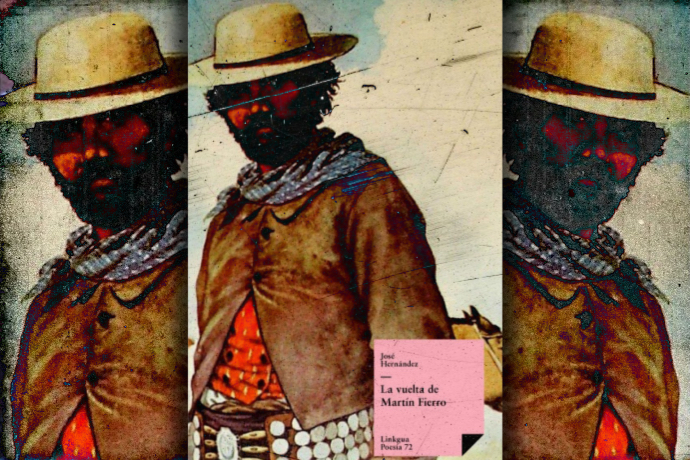The Platform
Latest Articles
by Muhammad Zain Ul Abdin
by Ismaila Biliaminu Manne
by Ismaila Biliaminu Manne
by Arth Agarwal
by Sohail Mahmood
by Sehr Rushmeen
by Iqra Awan
by Areesha Anwer
by Abdul Mussawer Safi
by Punsara Amarasinghe
by Muhammad Zain Ul Abdin
by Ismaila Biliaminu Manne
by Ismaila Biliaminu Manne
by Arth Agarwal
by Sohail Mahmood
by Sehr Rushmeen
by Iqra Awan
by Areesha Anwer
by Abdul Mussawer Safi
by Punsara Amarasinghe
Football: The Epic of the Pampas
150 years ago, Argentine writer José Hernández’s epic poem El Gaucho Martín Fierro was first published. It became a worldwide bestseller translated into dozens of languages. Hernández wrote El Gaucho Martín Fierro as a fiction, narrating the deeds of a gaucho (cowboy) of the Pampas.
For reference, the Pampas is a “vast plains extending westward across central Argentina from the Atlantic coast to the Andean foothills, bounded by the Gran Chaco (north) and Patagonia (south).”
Different from other strands of American literature, Martín Fierro is a genuine character in his time and landscape, and he seems to be a real person, not a tragic hero. Readers get to know him through what he feels and what his motivations are.
El Gaucho Martín Fierro is a poem full of the sentiments of those who suffer the turns of life, of people lost in an unfamiliar landscape.
Indeed, the gaúchos from the Pampas together with European immigrants who were moving to Buenos Aires and Montevideo at the time El Gaucho Martín Fierro was first published, are also the main subjects of the tango of the Río de la Plata.

Many years ago, Hugo del Carril, legendary Argentine filmmaker, actor, and tango singer once gave an invaluable lesson to an amateur theatre group I belonged to. The gestural and the ritual on stage are accomplished by the assimilation of an idealized model, not necessarily real; even less banal. In this sense, the idealization of the people of the peripheries as an essential part of the whole is not only very present in the culture of the Argentines but also sets its deepest roots.
The football World Cup is where the people of the peripheries are also the protagonists. Along with its global reach, the economic-financial value chain of football as a sport-spectacle is also well established. It is precisely the economic-financial value chain of football, with a worldwide reach and a consolidated feature, the axis on which all its dimensions pivot. However, it is noteworthy that even with the corruption problems, the football value chain is globally consolidated, but not necessarily hegemonic. Rather, its hegemony is disputed; unlike industrial or financial services value chains that, consolidated or not, tend to be globally hegemonic, an aspect that surprisingly escapes the analysis within the sphere of pure business.
Furthermore, access to the global value chain of non-traditional regions and peripheries is one of the most authentic roots of football, both as a sport and as a spectacle, as the latest version of the most popular tournament in the world showed.
In this regard, Qatar was also the stage in which, for the first time, three women were appointed referees. Stephanie Frappart, Yamashita Yoshimi, and Salima Mukansanga were joined by Brazil’s Neuza Back, Mexico’s Karen Diaz Medina, and American Kathryn Nesbitt as assistant referees.
Argentina, a country coming from the distant periphery, won the 2022 World Cup; while Morocco was the first African country to reach the semi-finals. While the triumph of Argentina will remain in memory, the victories of Morocco are an accomplishment that should not go unnoticed in present times so devoid of epic.
Flavia Di Cino was team leader of study groups dealing with strategy and supply issues at the International Gas Union. She was professor at the Universidad de Buenos Aires and Instituto Tecnológico de Buenos Aires and head of planning teams at energy companies.
